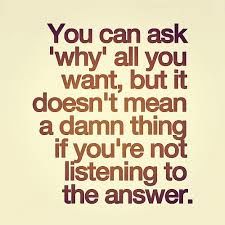Creativity
Want Better Answers From Your Team? Ask Questions First
New research shows how to boost team brainstorming.
Posted November 12, 2018

A new scientific study of team creative problem-solving was published last week by one of my favorite innovation researchers, Roni Reiter-Palmon with her colleague Vignesh Murugavel.
In the study, 65 teams were presented with an ambiguous scenario that needed a creative solution. Half the teams did the usual thing, leapt straight into "solutioneering" and focused on immediately solving the problem. The other half, instead, spent some time questioning, interrogating, and delineating the problem (what academics in this area call “problem construction”) and then moved onto the idea generation phase of the creative process. The results of the brainstorming by the two groups were then judged by "blind" raters who had no idea if the teams had engaged in careful problem construction or jumped immediately into solving the problem.
The study had some interesting findings.
Teams that considered the problem before brainstorming were judged to have produced (slightly) more original ideas and perhaps most importantly. They felt more satisfied with their solution and experienced less conflict.
This has important implications for the leadership of high-performing teams.
Do not jump straight into brainstorming when faced with a problem. I know that it feels like progress to take a JFDI approach (a common practice in business is to simply “Just F*©k!ng Do It”), but it is a poor choice. Take a few minutes to clarify the problem, the opportunity, the issue. Why are we brainstorming? What really is the problem? What is really going on here?
Although the study only points to a marginal increase in solution originality (which is of course wanted) the real win here for leaders is that taking the time to question the question leads to higher satisfaction and lower conflict.
By extrapolation, teams that engage in problem-construction will "get behind" the solution, believe in it and be more motivated to put the solution into practice. Further, they will likely have enjoyed the process more and have greater inclination to get engaged with team problem-solving the next time around.
In short, if you want better creative answers from your team then spend more time at the front-end asking questions.
You can read the #openaccess study here.

References
Reiter-Palmon R., & Murugavel, V. (2018). The Effect of Problem Construction on Team Process and Creativity. Frontiers in Psychology, 9,


